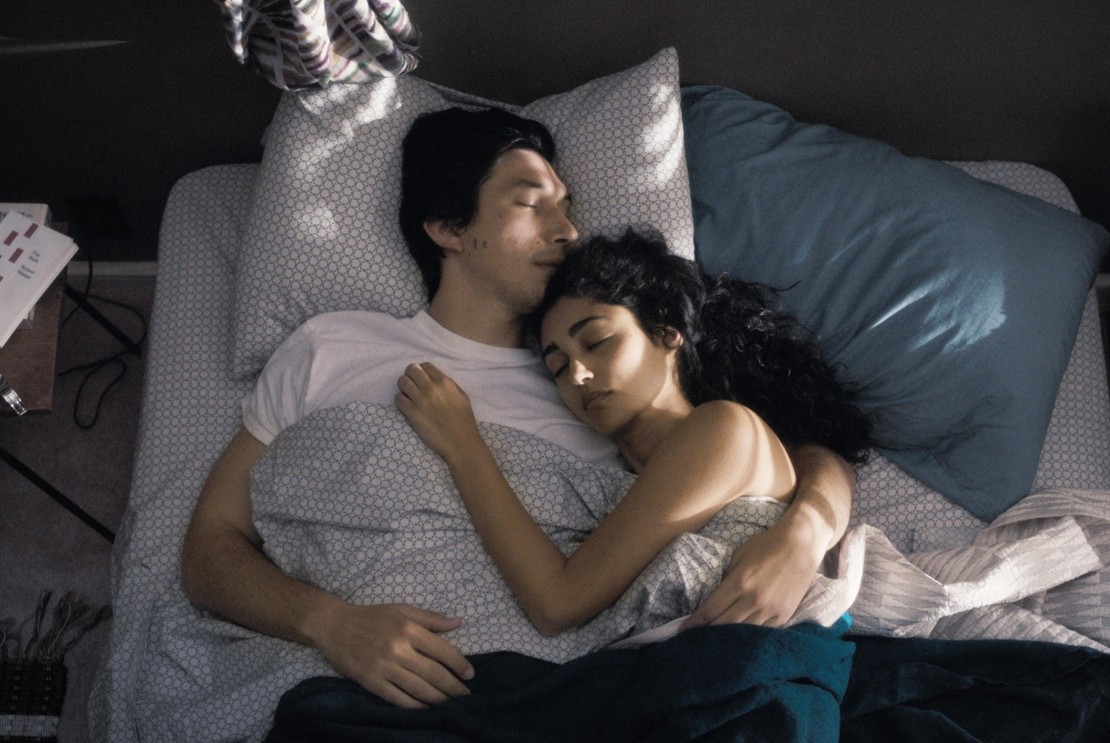Jim Jarmusch’s “Paterson” washes over you like the waterfalls to which its title character often returns. It is a sublime, delicate film that sees as much beauty in a morning kiss or a box of matches as it does in anything we’ve come to define as typically romantic in cinema. It such a deceptively simple film—a life in the week of a bus driver who happens to be an amateur poet—and yet it has a remarkable cumulative power. “Paterson” is a movie of moments, like a collection of poems by the lead’s favorite author, William Carlos Williams, who just happened to be from Paterson, New Jersey.
That’s where our story takes place. Yes, the title character and the setting of the film share the same name, a bit of duality that Jarmusch clearly enjoys, and he’ll regularly return to concepts of mirror images (recurring sets of twins throughout the film) or iconic partnerships (everything from Romeo & Juliet to Sam & Dave). The human Paterson of this tale, played with laconic grace by Adam Driver, is a bus driver, who, like so many of us, lives a life of routine. “Paterson” takes place over a week of his life, and every day is greeted with a title card (opening with “Monday,” moving on to “Tuesday,” and so on). Each day opens in almost the exact same fashion. Paterson wakes next to his lovely girlfriend Laura (Golshifteh Farahani), kisses her on the forehead or cheek, puts on his watch, has his Cheerios, and walks to work.
The weekly patterns continue throughout the film. We see Paterson talk to his supervisor Donny (Rizwan Manji) every morning before heading out on his route. Every night, he walks the English Bulldog Marvin, stopping at a local watering hole—the kind of place that will never have a TV and has one of those jukeboxes with the clanking pages—to chat with bartender Doc (Barry Shabaka Henley) and some of the other regulars. Every morning, he has Cheerios. Every night, Doc has his beer waiting for him.
And yet Paterson’s life isn’t remotely presented as one of dull routine, as we so often see in films of this nature, for within the predictable structure there are moments of unexpected grace. It could be an overheard conversation on his bus (including one that cleverly reunites “Moonrise Kingdom” stars Kara Hayward and Jared Gilman) or a bit of drama at the bar—the latest involves an extended break-up between the forlorn Everett (William Jackson Harper) and the steadfast Marie (Chasten Harmon). It could even be a poem read aloud by a young girl sitting near his work—a bit of nearly movie-stealing work by the great Sterling Jerins. Seriously, I love this scene so much I want to hug it—from Driver’s brief look of concern when he sees a child sitting alone to Jerins’ joy that he wants to hear her poem, because she knows it’s damn good.
Paterson may be more inclined to hear a young girl’s poem than most people because he happens to be an amateur poet himself. Throughout “Paterson,” Jarmusch breaks the traditional form of the film for a poetic interlude, capturing a poem that Paterson is working on by literally putting words that look handwritten up on the screen as Driver reads them in a manner that makes it sound like he’s coming up with them for the first time. Paterson’s poetry is like Williams’—finding beauty in the simple things in life. He writes them down in a journal he carries with him everywhere, even as Laura begs him to make copies. Laura herself is a force of nature—painting everything in the apartment, down to the shower curtains, and making cupcakes for the farmer’s market that weekend. Farahani is a delight, never selling her character short as the Manic Pixie Dream Girl she could have become, but sketching a woman in love—with her boyfriend and life in general.
Cupcakes, poetry, bus rides—“Paterson” surely doesn’t sound like the stuff of great drama, and yet it definitely is. Thanks in large part to Driver’s fantastically low-key performance—he never draws focus from the tone of the piece, going with an internal, observant approach—we come to believe these people exist. I found myself looking for Everett & Marie in the background whenever Paterson would get to the bar. I wondered what Laura painted that day. And I looked forward to Paterson’s next poem. Jarmusch’s work here is so understated and deceptively simple that some people will dismiss “Paterson” as “not enough happens.” And yet it is a film that is about finding “enough” in everything around you.












